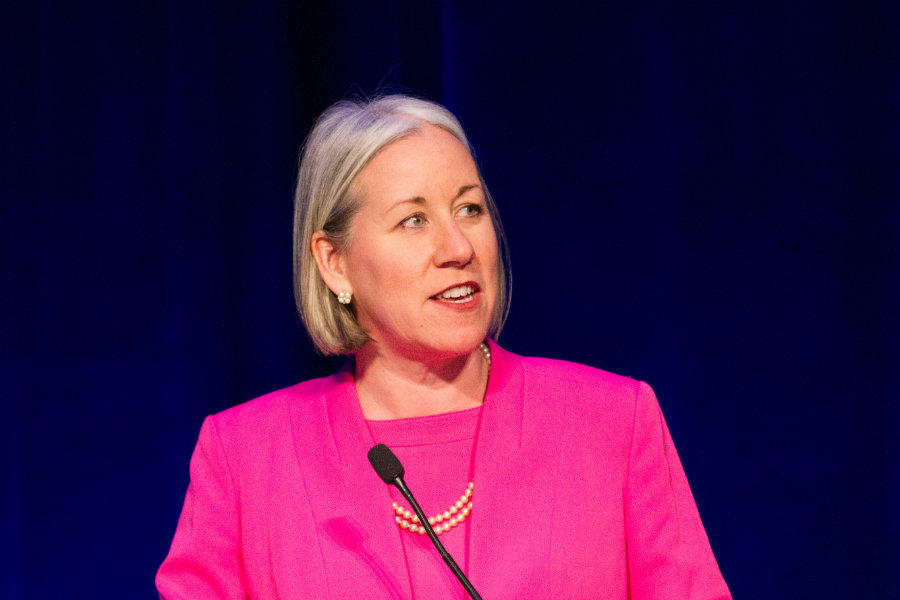You were an intern at Planned Parenthood of Illinois (PPIL) as a college student in the ’80s. What’s it like to return?
During my senior year, I interned at one of the Loop locations for two semesters, and then I started working full-time at Planned Parenthood before I even graduated. It’s like coming full circle. Planned Parenthood didn’t only teach me how to take blood pressure [as a healthcare assistant], but it taught me how to protest and rally. I’m coming back to the place where I really started as an activist.
What’s your vision for the Illinois chapter during this Trump era, given your 25 years of experience in the field?
I don’t need to turn this ship [around]; I just need to lead them at a very challenging time. We have three main goals: serve patients, provide accurate sexual reproductive education, and work on the policy end to make sure that Planned Parenthood remains an oasis for accessing services.
I was [Illinois Attorney General] Lisa Madigan’s policy director for many years. I come from the domestic violence services arena; I have a lot of experience serving vulnerable women. And I also come from the City of Chicago [Department of Family Services]. So I feel like I am very much the right person for PPIL at this challenging time.
The Midwest has some of the country's toughest abortion regulations, but Illinois historically has been more progressive. As neighboring states clamped down on access to the procedure, this chapter saw a spike in visits. Why is Illinois different?
We’re really fortunate that we’ve had a legislature that has protected all access to reproductive healthcare services, and we’ve had a lot of supporters in the General Assembly. We also have a very active group of supporters in the public.
Gov. Bruce Rauner personally supports Planned Parenthood, but for political reasons promises to veto HB 40, the bill that protects—among others—abortion rights in the state. What does that mean?
[Rauner and his wife] have been our supporters, and of the [American Civil Liberties Union], Personal PAC; they’ve been supporting the field for a number of years. I can’t explain what he’s thinking or what he’s trying to do. We have years of support from the Rauners and a relatively new announcement, and we’re all still trying to figure out what that means.
You’ve said in a past interview that politicians’ talk about defunding Planned Parenthood is not really about abortion, but rather “an effort to limit access for women who have lower incomes and fewer alternatives.” How so?
It’s just about giving vulnerable patients less services and less choice. In many locations, Planned Parenthood is the only family planning provider. That’s true in many towns in central Illinois, like Decatur, Pekin, and Peoria. And local congressmen telling their constituents that if they defund us, those patients can just go to any other federally qualified health center—is the dentist going to have a side biz in Pap smears? Is the substance abuse center going to suddenly start doing breast exams? A lot of those places right now already refer to us.
Our critics are not being honest about what defunding Planned Parenthood means. Most of our patients don’t come to us for abortions. I think that politicians and the public need to think about the ultimate impact of defunding Planned Parenthood, about how soon we would see an increase in unintended pregnancies, sexually transmitted infections, or in a worst-case scenario, an HIV outbreak.
You’re an avid cyclist on a quest to tour Chicago’s 77 neighborhoods. Any parallels between the quest and what you do in your professional life?
For me, it is about really seeing people at where they are. When you bike through a community, you can’t just zip through and ignore the fact that some places are developed and some places are not, that some places have good infrastructure and some don’t. It’s the same thing I do in my whole career of servicing people: You have to acknowledge what people have and what they don’t have.



